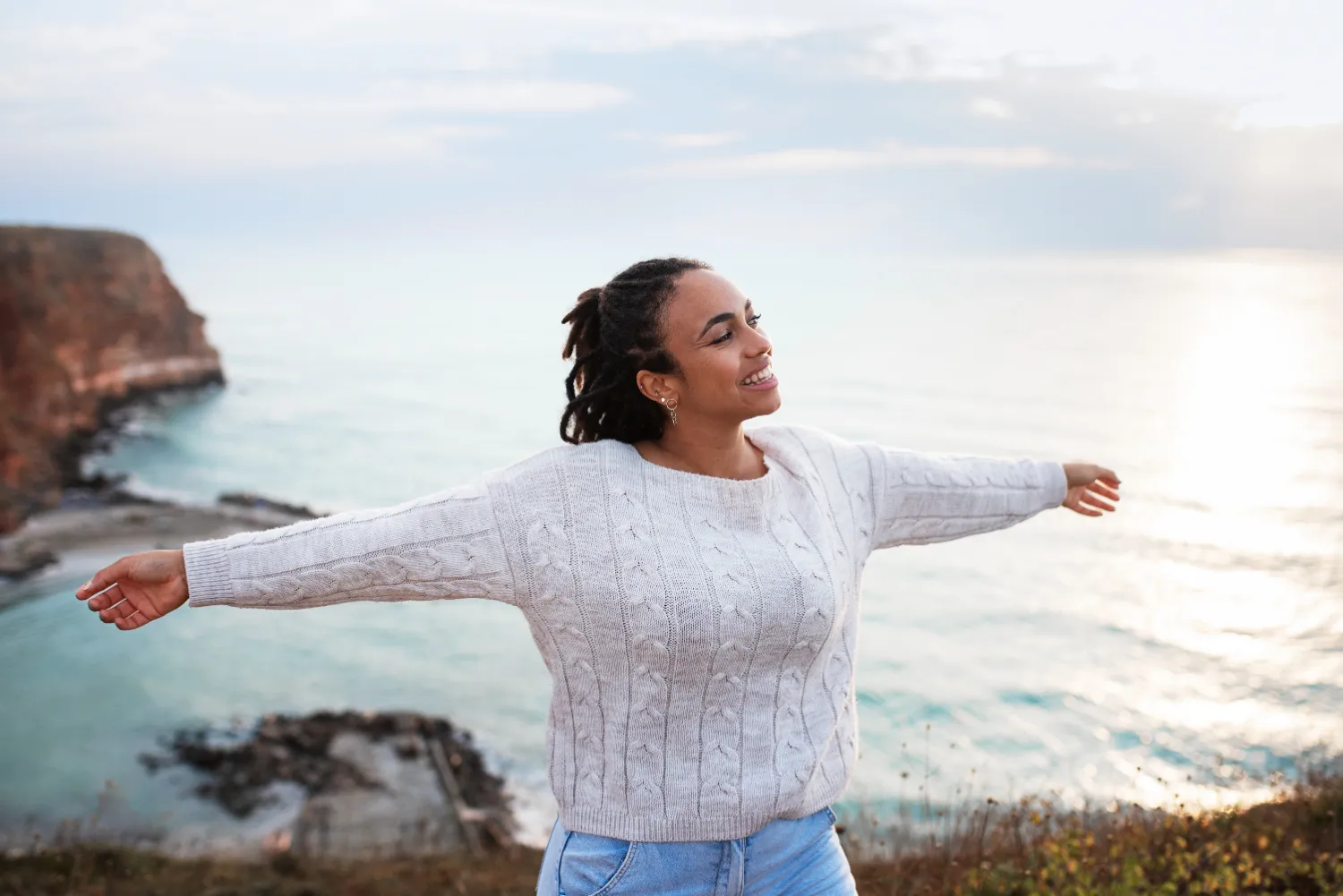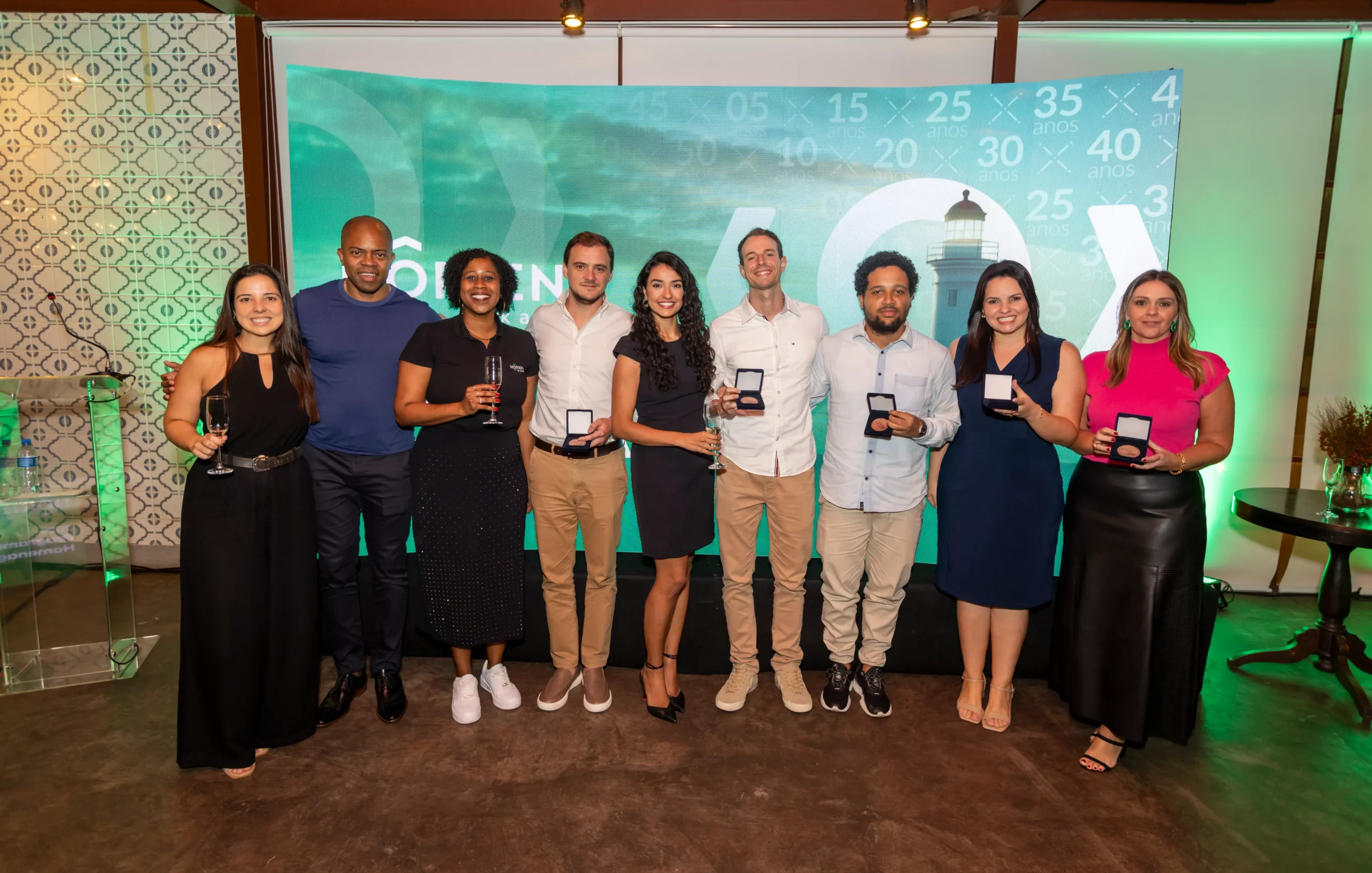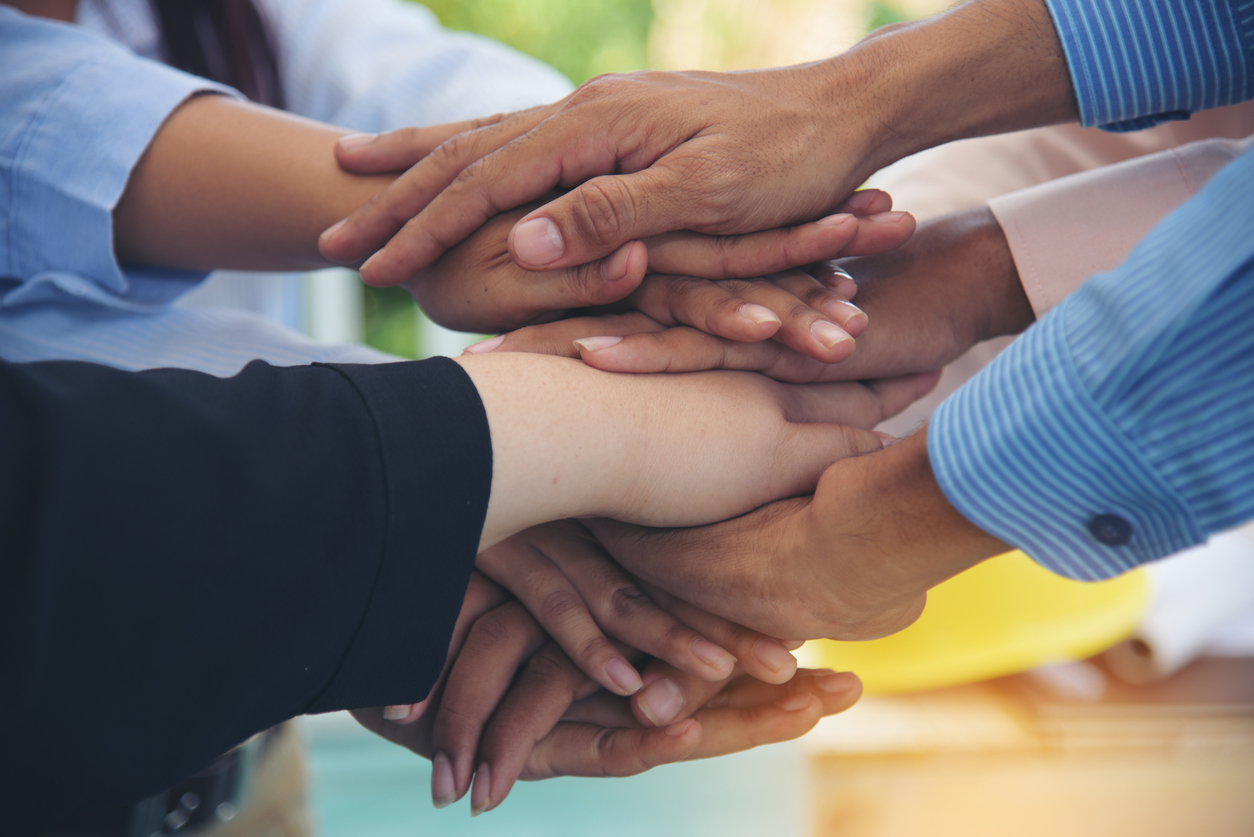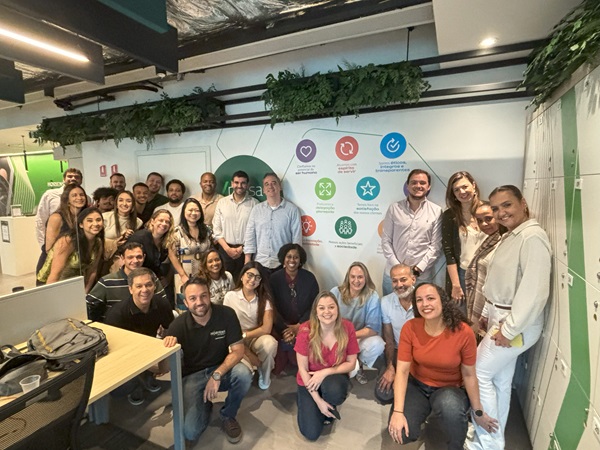The challenges in the fight against racism
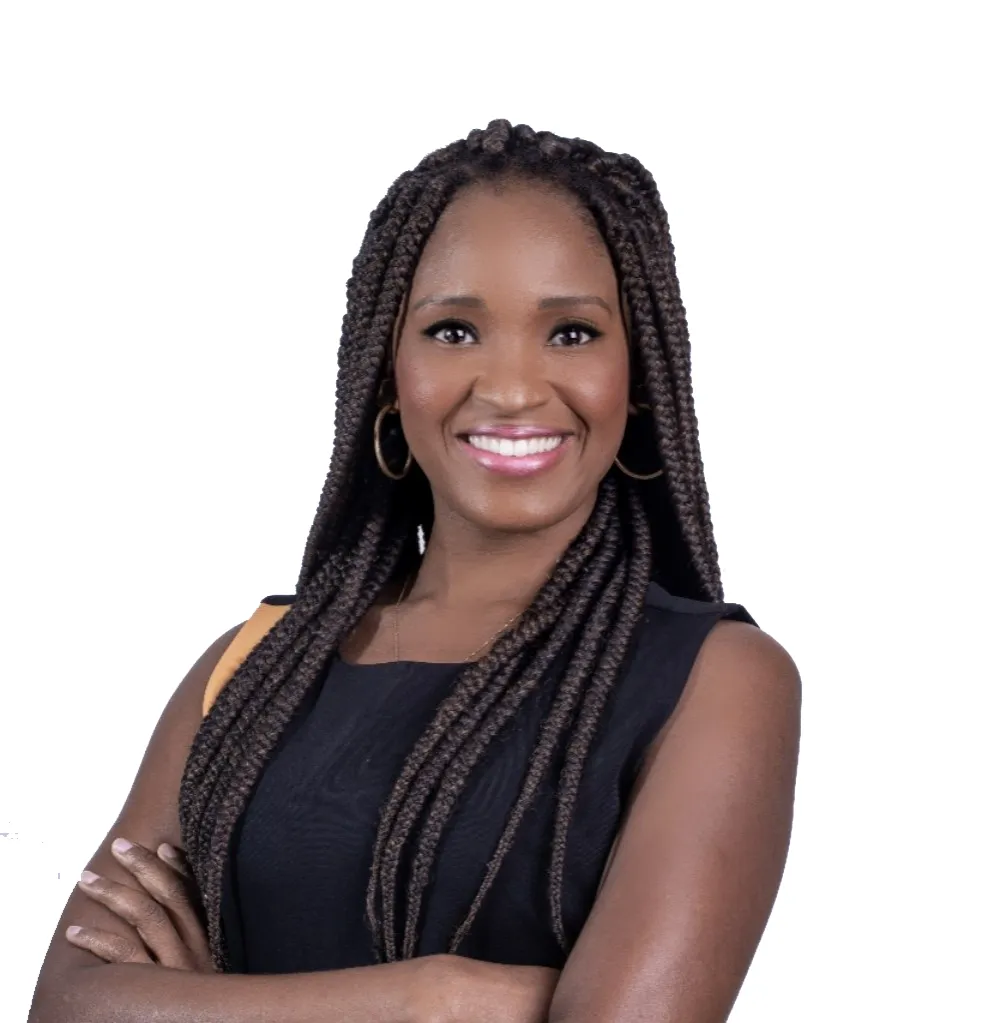
Written by: Luanda Santos - 29/11/2021
My name is Luanda Santos and I start with my first and last name because I learned from the black activist and intellectual Lélia Gonzalez that we need to give our name and last name, otherwise racism will name us any way it wants.
I am a black woman, born and raised in the periphery of Salvador. Like many black families, I come from a matriarchal-based family; my mother spent most of her life raising me and my sisters alone. My father didn’t know how to deal with fatherhood right away, and took a different path, but recently we have managed to align our steps and are back in the same path together again.
Starting these lines with my history and origin reminds me that I have not come this far alone, and so I honor all those who came before and paved the way so that I could move forward.
My mother is my first reference and inspiration in life, even with all the difficulties and barriers that racism imposes on us, she always showed us that we should not stop in the face of challenges. One of the things she has always made a point of showing us is that the greatest chance of changing our reality would come through education. Even though she was only able to complete her studies after adulthood, she always believed and invested, within her means, in the education for her daughters.
And that was the path we took. I started doing activities to help financially at home from a very early age. I sold candy at school, took care of children, sold artisanal crafts, but I never gave up my studies, a non-negotiable demand from my mother.
I started working formally in an internship at the age of 15. It was during this period that, without even knowing it, I suffered the first impact of structural racism and realized the vulnerabilities of the meritocracy discourse when, in a selection process for a fast food chain held at school, even though I had the best grades and lived in the same place as a white friend, she was chosen and I was not. I may not have passed the “good looks” criterion, but soon after I got a position in another internship through a competition.
At the age of 18 and participating in an affirmative action public policy, Prouni, I went to college and graduated as an advertising executive, and it was then that the combination of education and opportunity began to draw a different path in my life.
This is why, at this moment, we are starting to discuss the revision of Law 12,711 (the Quotas Law), I consider it more than opportune to point out the importance of public policies of inclusion and racial equity. Although I was not a quota participant, without this program I might not have had the opportunity to go to college and become the first person in my family to graduate from college.
We cannot forget that this country kidnapped, tortured, and enslaved black and indigenous people for more than three centuries and then simply abandoned them to their fate. We are not even at the beginning of repairing the historical debt that has been created over these years. And it is not with the speech “if you want it, you can get it”, that we are going to equalize this issue.
The period in college brought me other challenges, I always knew I had black skin, but as Neuza Santos says in her book Becoming Black, that was the moment I became a black woman. Being in an environment where at every moment people, codes, and places were saying it wasn’t for me was quite challenging.
There I began to understand that my entire trajectory until then had been marked by a system structurally formed to exclude people like me, which denied me everything from my ancestral surname to access to spaces like that one.
However, having participated in the workshops of the Afro Ilê Ayê block during my adolescence in Salvador gave me a framework to face the challenges that lay ahead of me, because there I learned to like my hair – which everyone said was bad, my negro features, and especially to say that I preferred to be called black and not brunette, as I once wanted to be. Taking ownership and having the understanding of my identity was fundamental to occupy that place.
In the same way that having contact with the works of black feminists like Lélia Gonzales, Sueli Carneiro, Angela Davis, Conceição Evaristo, Bell Hooks, among others, made me understand and perceive my place in society and deny other people of writing my story or determining my path.
However, my trajectory is only an exception that confirms the rule. For many times I still carry the weight of being the first or only black in some spaces. And this means that more than 10 years after my graduation, racial and social inequality is still being reproduced in the same way, and for one of us to have access, several others need to fall by the wayside.
Even though the number of black people in universities has grown in recent years, these people are not absorbed in the job market, or when they are hired, they remain only in operational positions. According to the 2020 Survey conducted by the Business Initiative for Racial Equality, only 6.3% of the management positions are occupied by black people, in the executive positions we are only 4.7%, and when we cut by gender, we have only 1.6% of black women in management positions.
In a country where, according to IBGE, 56% of the population self-declares black, considering black and brown people, and is composed of 28% black women, these numbers show us that we continue being marginalized or “included” with a limit, as if there was a glass wall that did not allow us access to the other side.
For black women this access has been increasingly difficult; we continue to occupy the bottom of the social pyramid and are seen as “the other of the other,” as Grada Kilomba, Portuguese artist, writer, and scholar, puts it.
The intersection of race and gender leaves us behind the white man, who occupies the top of the pyramid, the white woman, and the black man. Even though we are better prepared, because black women are the majority in universities in relation to black men, we still receive the worst salaries and are not considered for leadership positions. While white women are discussing places in Board of Directors, we, black women, are still struggling to have our competence recognized and not be discredited.
Even though after the death of George Floyd and the rise of the Black Lives Matter movement, companies started to pay attention to the importance of the diversity agenda, we are far from the ideal scenario, and it is estimated that it will take more than 120 years for black people to have the same opportunities as white people.
That’s why, more than focusing on diversity, it is necessary to invest intentionally in inclusion, paying attention to intersectionalities. It is not enough to be diverse at the base, you have to include it in all layers of the business, especially in the decision-making positions. This means giving access and opportunities to vulnerable groups with equity, offering conditions for everyone to reach their full potential.
As a black woman, these issues more than cross my mind: to talk about diversity and inclusion is to talk about who I am, it is to say that I want to be considered for leadership and board positions. More than that, as the executive Samantha Almeida well summarized, it is to say that I want to be part of the last generation of firsts, I want to see peers, leaders, and CEOs like me. I don’t want to be remembered only in the month of November or to be considered only to talk about racial agendas.
Therefore, joining the Diversity and Inclusion Committee at Horiens, a company I have been working at since 2014, and contribute to projects that are being gestated, in addition to helping to build others that are yet to come, is to act with purpose, taking responsibility, occupying my space and paving the way for those who will come.
I believe that this is the place to get to, each individual needs to take responsibility for inequality – whatever it may be – and work towards equity.
The anti-racist struggle must not remain only in discourse but must become a practice. We are late and I am in a hurry, for myself, for my ancestors, and for those yet to come. Can I count on you in this fight?
Description: Luanda Santos, a member of Horiens, shares her story, challenges and opinion about the paths that need to be taken by people, companies and society in the search for racial equity




